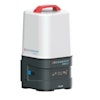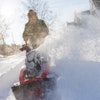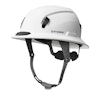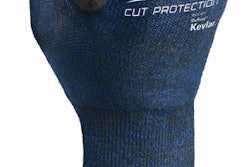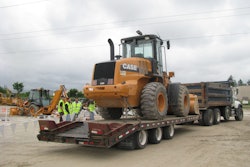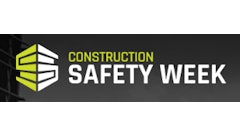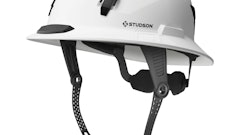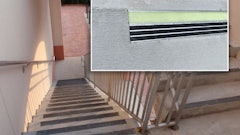
Fewer people are dying on New Hampshire roads this year.
The reasons are multifold and not necessarily scientific. Better enforcement of speed and drunken driving, a slight increase in seat-belt use, and a flagging economy could all be contributing factors, according to Peter Thomson of the New Hampshire Highway Safety Agency.
Highway fatalities are down approximately 25 percent this year compared to the same period last year. Last week, Thomson said 99 people had died on Granite State highways, compared to 131 for the same period in 2008.
"It does look like 2009 is going to be a better year," Thomson said. "I am really hoping that trend continues to the end of the year. I'm hopeful it stays down."
With the Thanksgiving holiday this week, travel is expected to be heavy. More people travel for the November holiday than do at any other time of year, Thomson said.
New Hampshire State Police will be doing their part to make sure people traveling New Hampshire roads are driving within the speed limit -- and driving sober.
"We'll be out there for enforcement for speed and DWI patrol," said Capt. Christopher Colitti, commander of special services for the state police. "Hopefully, we can maintain keeping things on a downward spiral."
New Hampshire is doing better than the country as a whole, but highway deaths are down nationally, too.
State mirrors national picture
Overall, traffic deaths have been on the decline since 2005, according to the National Highway Traffic Safety Administration. For the first six months of 2009, fatalities dropped 7 percent over the same period in 2008.
If there's an upside to the economy, it could be found here. People are traveling less. There was a 0.4 percent decrease in vehicle miles traveled in the first half of the year, according to the Federal Highway Administration.
The percentage may not sound like much, but it amounts to a 6.1 billion mile decrease. Nationally, the fatality rate dropped from 1.23 deaths per 100 million vehicle miles in 2008 to 1.15 deaths per 100 million miles through June of this year, according to the FHA.
"They tell us people aren't traveling as far from home," Thomson said.
But he also credits the decline in highway deaths here to basic police work.
"I also attribute it to the extensive and excellent work the law enforcement community is doing," he said. "I've seen more and more police presence on roadways throughout the state."
There's a reason for that. Simply put, the state police have more money to dedicate to speed and DWI enforcement. It's a joint effort: Thomson's agency provided an increase in funding and state police put more troopers out there looking for drunken and speeding drivers.
Increased funding equals more patrols
State police received about $106,000 for speed enforcement and just under $100,000 for DWI enforcement from the New Hampshire Highway Safety Agency this year, Colitti said. The increase has made a difference.
"It probably has had an impact," Colitti said. "We have had a significant decrease in the number of fatalities."
And the areas in which the state police have been concentrating DWI and speed patrols have seen significant declines in fatalities.
For example, Rockingham County had 27 highway fatalities at this time last year. This year, that number was at 16 as of Friday. And, Colitti said, his troopers have been out there doing DWI and speed enforcement. In neighboring Hillsborough County, highway deaths stood at 22 at this time in 2008 and have dropped to 13 this year. Strafford County has dropped from seven deaths last year to four this year, Colitti said.
"It's like anything else. If we can put the resources out there at the appropriate times, we can reduce things," he said. "I don't care if it's crime or speed ... If you can saturate with law enforcement, we can reduce the problems."
That enforcement isn't confined to interstate patrols, Colitti said. State police are doing roving patrols for speeding and drunken drivers on secondary roads, too.
And Colitti said he's selective about which troopers are assigned to those patrols.
"We want you to be extremely conscientious about looking for drunk drivers," he said. "We want people who are out there being very aggressive. We call them DWI hunters."
State police will be out in force this week for holiday traffic, he said. The agency just received its federal funding for 2009-2010.
Work zones may have an effect
Thomson also attributed the decline in highway deaths to a spike in interstate work zones, which slow drivers down by the very existence, but also are a common site of radar enforcement.
"Police are now detailed to construction zones, and they're also running radar at the same time," Thomson said.
Going through a 55-mph work zone slows most drivers down, he said, and they're more apt to think about accelerating back to the speed limit -- and not beyond.
Colitti agreed with that theory in part. But he noted that work zones are now better advertised. Drivers are warned well in advance of a work zone and drivers often know police run radar in those areas and they tend to slow down.
Seat-belt usage is up in the state, too, something Thomson pointed to as a contributing factor in the decline in fatalities. Nationally, seat belt usage is at 84 percent this year, up from 83 percent last year, according to the NHTSA.
New Hampshire is far below that number, coming in at 69.2 percent last year. But that was an increase from 63.8 percent in 2007 and still ahead of neighboring Massachusetts, which had the worst rate in the country last year, at 66.8 percent. The Granite State still does not have a mandatory seat belt law on the books, despite repeated legislative attempts to approve one.
But there is a new law taking effect Jan. 1 that safety officials think will further reduce accident rates and fatalities. Text-messaging will no longer be allowed by drivers on Granite State roads at the start of 2010.
To see more of The Eagle-Tribune or to subscribe to the newspaper, go to http://www.eagletribune.com/. Copyright (c) 2009, The Eagle-Tribune, North Andover, Mass. Distributed by McClatchy-Tribune Information Services. For reprints, email [email protected], call 800-374-7985 or 847-635-6550, send a fax to 847-635-6968, or write to The Permissions Group Inc., 1247 Milwaukee Ave., Suite 303, Glenview, IL 60025, USA.

